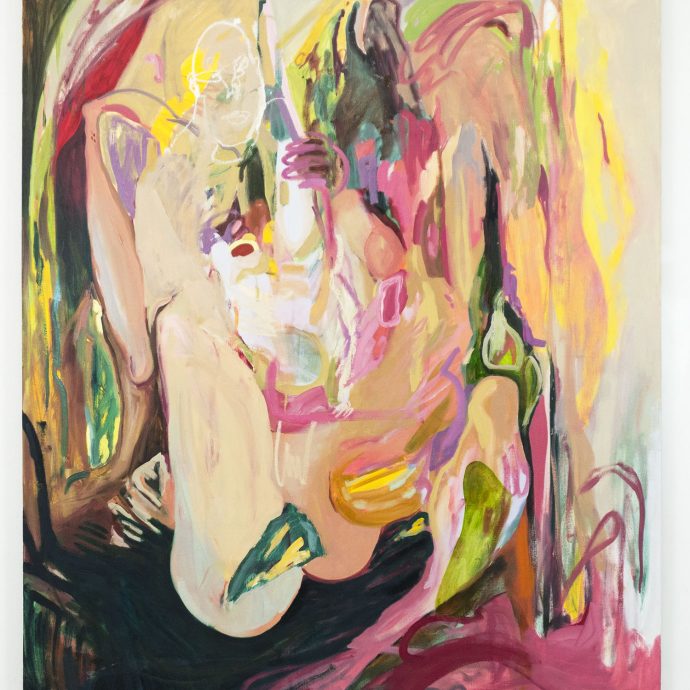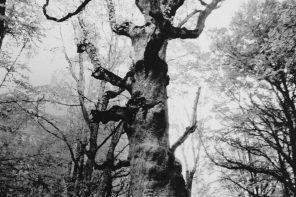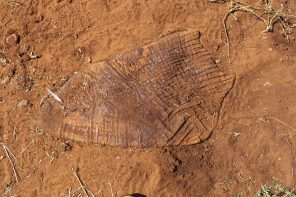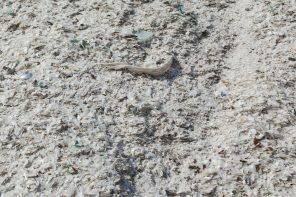Thomas Alva Edison Memorial Park
I
Pads and punks skim
a flat, reeded pond.
A crane flashes
from the crux
of kneeling
trees: a handkerchief
in an upper side
of suit, watchful.
The water is not at all
deep. The lightbulb
tower struggles to pull
above heaps of lost
leaves. Its base
wilts in filth
of swamp.
One eye, cloaked
with foam, between
highways, looking close:
the lake is seeded
by black plastic.
It was filled once
by hose. Looking
close: the flurry
of cranes is one
crane. It is one
exhaust-filled
lily. A light
poised in absolute
balance between
the heart
flaps of one
drab but
drifting
lilypad. Eggshell
plumed open.
Open mouth.
Some turtles drown
when it rains. Look up,
amazed, mouth open.
II
Someone is not
watching. Someone
around and decent
is not in the middle.
Someone is close
and specific
and fervent
about not coming
a step more towards.
There are four feet
up to the knees
in marsh.
Two sets
of lips touching,
pausing, pressure
closer. Someone outside
sees these bodies
and turns away, turns again.
III
Lilyroot filaments
a hundred thrown-
thread anchors
drift off the rafters
and are coated with electric,
gleaming algae.
There are streetlights
and there are stars.
Cranes, at night,
kick and bat
the light from the lake.
The park lies
blown and burst
each morning. The lovers
roll from the leaves, covered,
winged,
fingers tangled. Someone inflates
as they stumble toward sunup.
Masters Of Decimals
We are two beans
sprouting at the neck
when the world arrives.
It's the anemone's hour
of every stretch and we knock
heads by mistake: awake
with cheek full
of saliva, xylophone
of brine in stomach.
Having mastered decimals
watching Adult Math on television,
we bumped into sleep itself.
Had our detaching dreams
and you were living things
I wouldn't dream.
Has it been this way for long?
We tug and roll toward
each only other. Our bed envelope.
We have our terms,
we have our calculus,
and we have our calculus
in terms of shells. Not hardened
nor coated, but cloaked without in
the ocean's sine.
The moon rolls us into one
conch room. Mollusk long gone.
We curl around the helix.
One long lick
what we are.
I give you one long lick.
Our feelers emerge
from our collar
which is also our socks.
Still in bed, set in our places,
we are right (as the phone roars in our ears)
against each other, tenths, hundredths
The Sanitarium of Chunchon
I am sick so much, people call me hospital.
In the lightless mine, surrounded by jade,
I stretch my tongue until it uproots,
catch mineral sweat, taste fossils,
certain my circulation blushes.
Flaps of capillaries finally regular.
I rest from travel. I
am kicked in the head
by a woman with a liver
ballooned, diluted, fluid tomb.
Outside her body it
is seen dissolving.
Her husband plies her buttons
unpeels the blouse, and places jade
shards in orbits on the skin
of her belly and breasts. When she breathes
the pieces tremble
then remeet her,
edging between bones,
all pointing towards the center.
In my plane I cleave clouds:
A shoulder from the arm.
I hate that I have come here.
My blood at least
is moving. I gather stones for the man
and hand them to his hand. We dress her chest
with unstrung, evenly-spaced jewels.
A fit of coughs. She wakes the lid of her
own esophagus.
The man is her hanging cloud.
She is the acid soil of a temporary forest.
Sarah McCann was a Writing Fellow at the Iowa Writers’ Workshop and has been published in such journals as The Bennington Review, Acrturus, Mortar Magazine, The South Dakota Review, and Hanging Loose. Her poetry has also appeared in Thom Tammaro’s anthology, Visiting Frost: Poems Inspired by the Life and Work of Robert Frost and an anthology from the Academy of American Poets, New Voices. Her translations from the Modern Greek into English have been recognized by the Fulbright Foundation, and a book of her translations of Maria Laina was recently published by World Poetry Books.




